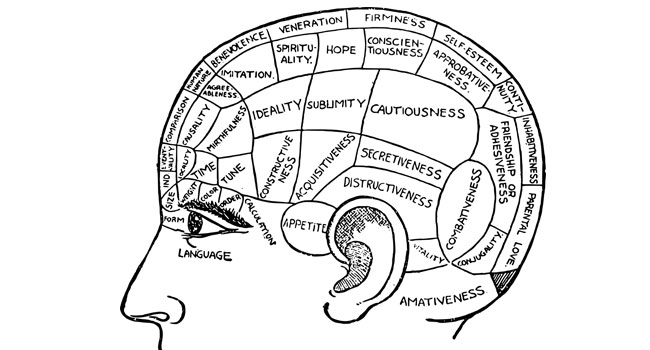
How to Recover Like an Olympian — And Finally Understand Men at the Same Time
August 21, 2012
A Radical Shift to Better Pain Relief
December 7, 2012
“We cannot solve our problems with the same thinking we used when we created them.” — Albert Einstein
As we head into the final stages leading up to election day, expect the fight over whom and what is best for our economy to rage on. Debating how best to stimulate the economy has been anointed as the de facto topic of importance heading into our upcoming election, but let’s not forget that the health of Wall Street and Main Street is inextricably linked to the health of our citizens. As I have written here in the past, I am no economic expert, but I do work in the trenches every day in a profession that impacts our nation’s budget like no other. The fact that doctors like me seem to drive the spending of tax dollars more than other occupations like teachers, governors, and generals tells you right there that health care is the elephant in the room of any debate on our economic future.
Consider the numbers as we know them. In 2010, the U.S. spent $2.6 trillion on health care, or about 17.6 percent of our GDP. Government spending accounts for nearly half of this cost, and an estimated 75 percent of this spending goes toward treating chronic diseases like diabetes and heart disease. This means our government is spending nearly $1 trillion a year on chronic disease, and this will soon double based on future projections that have us spending an estimated $4.6 trillion on total health care costs by 2020. A recent analysis released by the Institute of Medicine estimates that in 2009 we wasted $750 billion in unnecessary health care spending. So if it is “stupid” to not place all of our focus on the economy heading into election day, then I think it is “dumb” to talk about economic recovery and health care as separate topics as opposed to presenting Americans an economic plan that includes better chronic disease management.
So how do we spend more wisely and gain better value for what we do buy? There is a basic inherent flaw within the economics of our health care system, including our beleaguered Medicare, which must first be fixed before any of this will get measurably better. The underlying problem is that you don’t pay us doctors, the underlying drivers of more than $1 trillion in government spending, for what you really want. What you should want from us is our expertise, guidance, and education to help you be as healthy as possible and stay that way. Unfortunately, until now this perspective has been a non-reimbursable afterthought. There simply is no incentive for doctors to spend quality time with their patients to create great health. If the costs of treating chronic disease are overwhelming our country’s piggy bank, then surely, along with job creation, this must be the most important subject in an election that wants to focus on the economy. (Note to politicians: Telling voters you want to save Medicare or, conversely, saying you want to privatize it is not an acceptable answer as it does not address the real problems. And remember, diseases don’t suddenly disappear just because you decide not to pay for them.)
For most doctors, treating patients has become a volume-driven business. In a factory, efficiency and speed of production matter. The more patients or surgeries a doctor can plow through in a day, the more he or she will earn. This may not be simply a matter of greed either, but a matter of economic survival, especially for primary care doctors who can see upward of 30 patients per day while trying to afford their payroll, rent, malpractice premiums, and IT costs for their required new electronic medical records. When dealing with emergencies like a heart attack, stroke, or trauma, our ability to respond quickly and deftly is naturally an advantage, but when it comes to more outpatient management of typical medical problems, then this approach leads to poor outcomes and wasteful spending on chronic diseases that get worse instead of better.
How do we create a system where doctors can improve outcomes, cut costs, and spend more time with fewer patients? How do we transition from over-medicating to healing and from expensive treatments to lasting changes? Consider the example recently presented on The Huffington Post by Dr. Dean Ornish, who wisely devised a program geared toward fighting chronic diseases through creating sustainable lifestyle changes that is now covered by Medicare. This is exactly what we need, but his example is the exception, not the norm. How many doctors can afford to set up comprehensive lifestyle education programs in their communities and expect programs like Medicare to support them? In today’s world the answer is practically none. Doctors are generally highly-trained bright people who go into medicine wanting to help, yet we waste their talents if there isn’t a way for them to be impactful game changers where they are needed most. And the opportunities for success can now go well beyond the office visit when you consider the potential of using communication resources like the Internet and the clouds. But doctors don’t get paid to answer emails, tweet words of encouragement to their patients, post helpful cooking tips for diabetics on Facebook, or even to simply call their patients to check on how they are doing.
My own practice’s comprehensive program that specifically treats chronic pain shows positive outcomes for things like reduced medication costs, increased function, and better quality of life measures, but Medicare and most major insurance plans aren’t yet ready to pay for this type of comprehensive care. When patients don’t get access to this type of care, then they are forced to become more dependent on their doctors for what is covered, namely costly medications, procedures, and surgeries, often with less-than-desirable results, leaving us with $600 billion in annual costs associated with chronic pain.
Buried underneath all of this in the Affordable Care Act (now best known as Obamacare) are proposals for Accountable Care Organizations (ACOs) geared toward Medicare recipients.* ACOs create incentives for health care providers to work together to improve outcomes and lower costs in treating chronic diseases. But this is only a first step in what needs to be a rugged climb. This is a concept that can become a tipping point to creating better quality alternatives, or it can get stuck in the mud by political fighting, special interests, and administrative burdens. If chronic disease is a trillion dollar line item on our balance sheet, then shouldn’t you demand that your candidates put in place a value-driven system that your doctors can succeed with?


